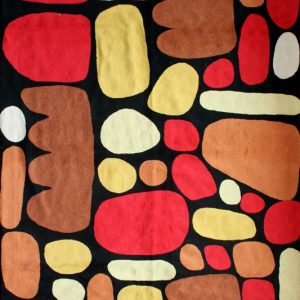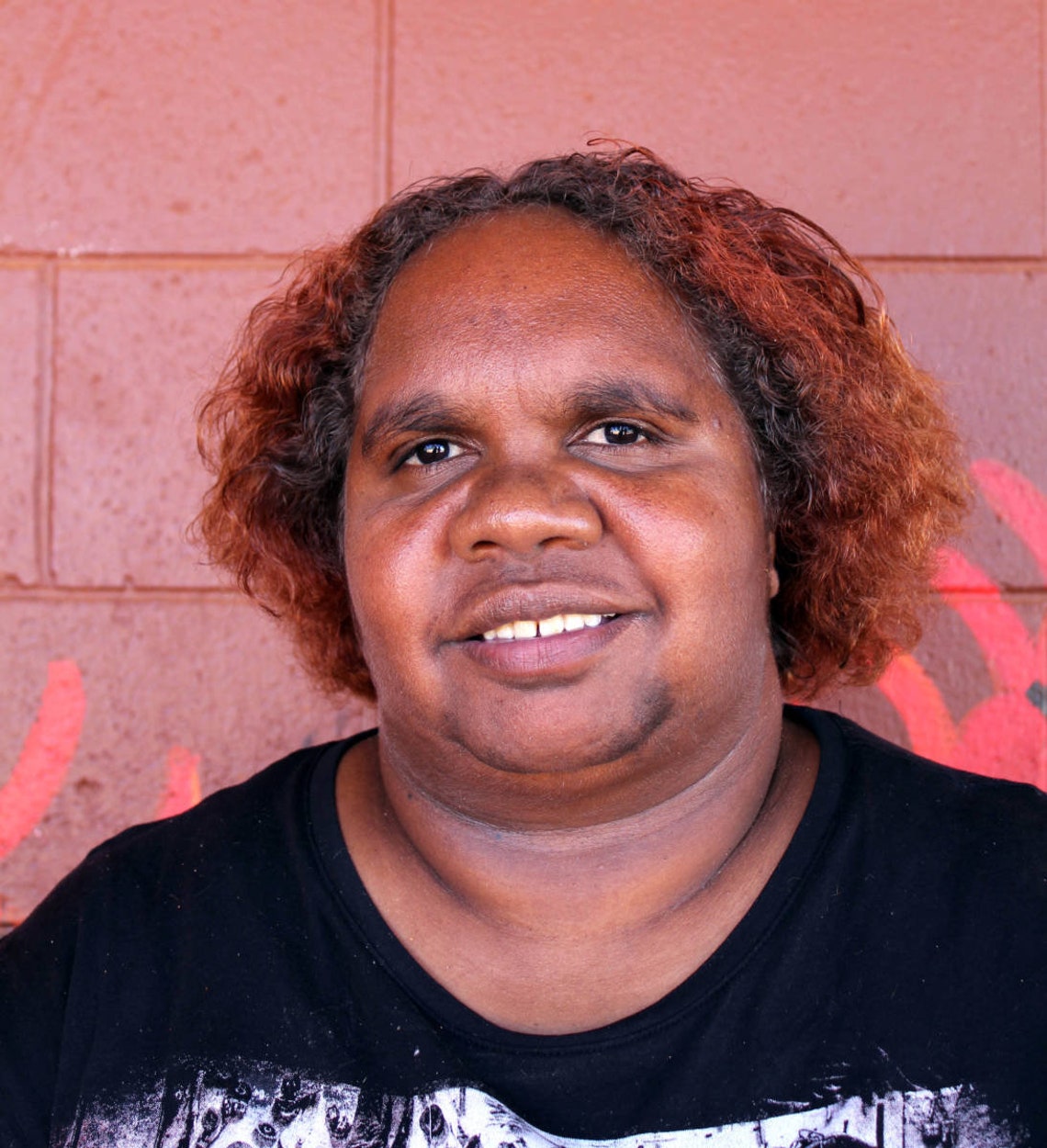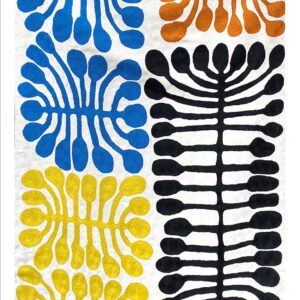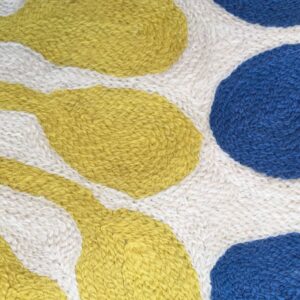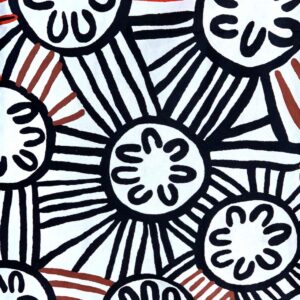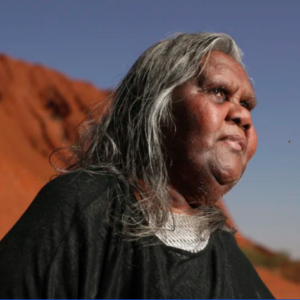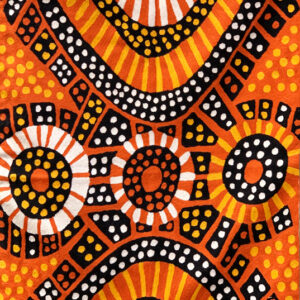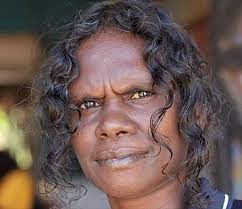Description
Composition: Hand dyed wool and cotton
Size: 122 x 183 cm (48 x 72 inches)
Features:
- Hand embroidered/chain-stitched
- All natural fibres – embroidered wool on cotton canvas
- Fair Trade certified
- Limited edition – individually numbered
- Certificate of Authenticity supplied with each kilim
- Royalties paid to the artist/family on every sale
- Hard wearing
- Back has non-slip surface
- Each kilim has flap on the rear for ease of hanging with dowel/rod
- Matching cushion covers are also available
Chain-stitched kilims are a traditional rug/soft furnishings making technique from Kashmir. As people sat on the floor they were both homewares and decoration. As many artworks are painted on the ground or 3D surfaces/bodies most of the images do not have a set orientation so can also be hung portrait or landscape if preferred.
The design:
Keturah uses different colours and hues to depict the ways the puli puli change colours with the weather, especially at sunrise and sunset. “The sand hills I paint are my mother’s story and the rocks I paint are my own story. My paintings are about my story and my mother’s…I like to paint; painting helps me forget my troubles. I paint every day. My Grandmother used to say to me when I was younger: ‘One day you will paint’.”
About the artist:
Keturah is an established Luritja and Pintupi artist, who comes from a long line of acclaimed artists. In her artworks Keturah depicts the puli puli (rocks) at two different sites. She paints the landscapes at Haasts Bluff where she grew up and also at Karrkurrutintja (Lake McDonald in Pintupi), located west of Kintore along the WA/NT border. Karrkurrutintja country is an important site of the Pilkati (snake) Tjukurrpa (creation story) of Kaniya Kutjarra (two carpet snakes, two brothers, two Tjangalas). She is a member of Ikuntji Artists.
This story was passed down to her from her grandmother, Narputta Nangala Jugadai, who was born there. Narputta was passed down this story from her father, Talaku Tjampitjinpa. Both Keturah’s grandmother and mother, Molly Jugadai, painted this same country. Keturah has been inspired by the painting legacy and tutorage from her grandmother and mother, though has developed a distinctive style over her practice.
CARE INSTRUCTIONS:
Do not put place/use in direct sunlight or colors may fade. To clean – dry cleaning recommended. Can be ironed on a wool steam setting.
About the Better World Arts chainstitch kilim products
These beautiful, unique textiles are a cross-cultural collaboration combining Aboriginal designs and traditional Kashmiri rug-making techniques. Chain stitched, using hand dyed wool, each is a completely handmade piece. A more empowering way to work, this brings many direct benefits to the artists’ and their community. Control and ownership of intellectual property are also maintained. Purchase of these products guarantees a direct return to the Aboriginal artist’s family and their community.

